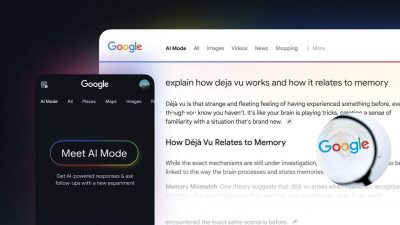Now Reading: Nepal’s search trends in 2025: Google rules, but Niriv aims to change the game
- 01
Nepal’s search trends in 2025: Google rules, but Niriv aims to change the game
Nepal’s search trends in 2025: Google rules, but Niriv aims to change the game

In Nepal, how people search and discover information online is quickly changing. While Google still dominates the scene, new platforms like Niriv are working to create a more local and personalized experience—especially for younger internet users.
Google still leads the way
As of June 2025, Google holds more than 95% of Nepal’s search engine market, according to StatCounter. This number goes even higher on mobile devices, reaching nearly 98%.
Nepalis use Google for almost everything:
- Finding news and information
- Translating languages (especially Nepali-English)
- Searching for maps, directions, or local shops
- Getting help with homework or tutorials via YouTube
For most people, Google is still the default option for anything online.
Apps are changing how people search
Although Google is dominant, people—especially younger generations—are starting to discover information in new ways. They’re using apps like:
- YouTube to learn, watch news, and follow tutorials
- TikTok and Facebook to find local tips, trends, and businesses
- Hamro Patro for calendars, news, and forex rates
- Nagarik App for government services like citizenship or traffic fines
These apps are not traditional search engines, but they are shaping how people search for things—without even using a browser.
Rise of AI-based search in Nepal
In 2025, AI-powered search is also growing in Nepal. Many people are now using tools like ChatGPT, Google Gemini, Microsoft Copilot, and Perplexity AI to ask questions, get summaries, and explore topics in a conversational way.
These tools are especially popular among:
- Students looking for study help
- Journalists and bloggers summarizing research
- Professionals seeking quick insights or translations
Nepali users are attracted to how AI tools understand context, answer in Nepali or English, and save time compared to traditional search. Although still in early stages, AI is starting to become part of the search behavior, especially in urban areas.
Niriv: A new Nepali alternative
A startup based in Biratchowk, Niriv is developing Nepal’s own digital platform that combines local search, news, content discovery, and services—all in one place.
Still in its early stages, Niriv plans to become a full-scale platform like South Korea’s Naver. Its future roadmap includes:
- Localized search with Nepali language support
- Curated and verified news to fight misinformation
- AI-powered recommendations and search features
- Built-in tools like weather, sports scores, maps, blogging, and more
Niriv is mainly focused on Gen Z users, offering a “scroll and discover” experience rather than just keyword-based search. It wants to change the way Nepalis find and interact with information—by making it more relevant, emotional, and culturally connected.
“Niriv isn’t just for searching. It’s about discovering what matters to Nepali users in a local context,” says the founding team.
Internet use in Nepal: Still growing fast
Nepal’s internet ecosystem is expanding rapidly:
- Over 16.5 million people use the internet, or about 55% of the population
- Mobile internet is the main access point, with growing 4G and smartphone coverage
- Popular apps like eSewa, Pathao, and Foodmandu are helping users search for services directly without using Google
This growth is opening the door for new local platforms like Niriv to thrive.
What this means
Google remains the backbone of search in Nepal, but people are increasingly relying on other tools and platforms depending on what they are looking for.
Search behavior in Nepal now includes:
- Traditional web search on Google
- Video-first search via YouTube
- Social media discovery on TikTok and Facebook
- AI-driven answers through tools like ChatGPT
- Localized discovery using apps like Hamro Patro, Nagarik, and Niriv
If Niriv’s vision succeeds, Nepal could have its own all-in-one portal, made for Nepali users, by Nepali creators. It could mark a shift from global platforms to local digital ecosystems built on trust, relevance, and cultural connection.
For now, Google continues to lead. But in the years ahead, local platforms like Niriv and AI tools could reshape how the next generation searches and connects online.
















